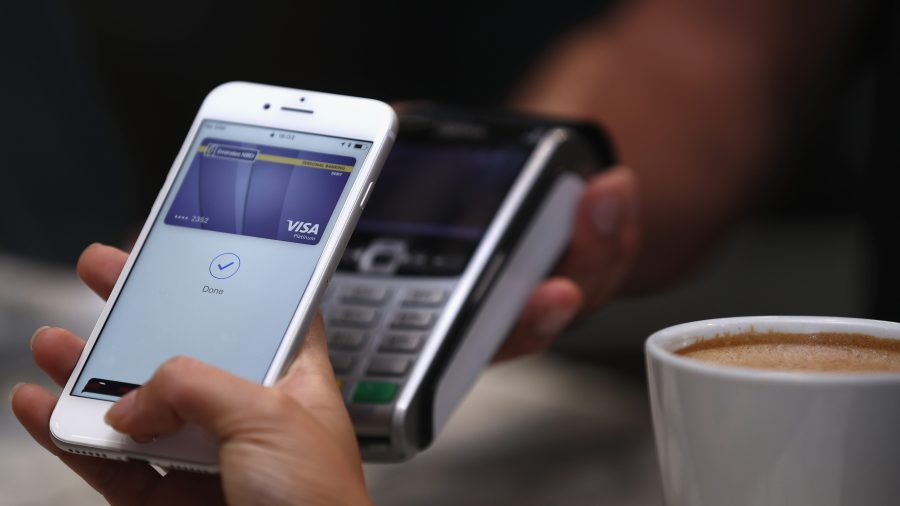Digital currencies are popping up everywhere, and that means competition

We’ve got bitcoin, dogecoin, litecoin. Every day a new coin. These are known as cryptocurrencies, unregulated digital coins that live outside the banking system in blockchain technology.
Recently, the U.S. Federal Reserve said it was exploring the possibility of a central bank digital currency, or CBDC. It would be issued, regulated and backed by the government, just like paper dollars. Some countries, like the Bahamas, Nigeria, Sweden and China, are already experimenting with this.
I spoke with Eswar Prasad, professor at Cornell University. He’s the author of a recent piece in the MIT Technology Review, “Money is about to enter a new era of competition,” and he told me what it would look like for all these currencies to coexist. The following is an edited transcript of our conversation.

Eswar Prasad: It would be like having Google Play, Apple Pay, Venmo and a couple of other apps on your phone. So actually, it might be quite straightforward to use these multiple applications on your smartphone. The one big advantage of a CBDC, as opposed to these other payment systems, is that it would have the feature of interoperability — you could, in principle, use a CBDC in any payment venue.
Meghan McCarty Carino: Could a shift to digital currencies like this pose risks for smaller and developing countries?
Prasad: In many countries, the local currency is not that trusted, even by the domestic citizens. If digital versions of the dollar or, for that matter, the Chinese renminbi, were easily available around the world, or even if we moved to a situation where large corporations such as Amazon or PayPal start issuing their own cryptocurrencies, those could very easily displace the currencies of some smaller economies or economies that have currencies or central banks that are not credible. We’ve already seen this phenomenon in some Latin American countries, even before digital currencies were available. But the easy availability of digital currencies would certainly expedite the process.
McCarty Carino: And what would that look like if you were someone living in one of those countries, both in terms of how you make transactions and what it does to the economy?
Prasad: It’s entirely possible that the use of the domestic currency might essentially disappear because people, in terms of transacting and also in terms of maintaining their bank deposits and other savings, decide to keep it in their alternative currency or currencies. And that would essentially mean that the country no longer has the ability to use the issuance of its money as a tool to conduct macroeconomic policies. If the economy is overheating and inflation is picking up, as is the case right now, the central bank could raise interest rates, reduce the printing of money. But if you don’t have your own currency, you essentially lose this policy tool — and it’s a pretty important policy tool, especially in desperate economic times.
McCarty Carino: Digital transactions are often considered potentially problematic in terms of inequality. There are many states that require businesses to still accept cash. I mean, what could this shift mean for addressing inequality within societies?
Prasad: There is certainly a concern that the disappearance of cash could disenfranchise the poor, the elderly, those who are not technologically sophisticated. But we’ve seen examples, even from very low-income economies, that using a very basic mobile phone, and even among people who are in rural areas or illiterate, it’s very easy to get access to basic banking systems. And moreover, there is the promise that through these new technologies, we will be able to make basic banking products and services much more widely available at very low costs. So I think, overall, the technology has many potential benefits in terms of diminishing inequality. But, of course, we need to make sure that financial literacy and consumer protection are taken care of amidst all of this because the reality, as in most of the cases, is that technology by itself is not going to solve all problems. It could create a few newer ones, but by and large I’m positive that it’s going to be a net benefit for society.
McCarty Carino: What do you envision as the future of money and how we interact with it? I know you wrote a whole book about this, but in one answer.
Prasad: Money is going to be digital, and I think we are set for an exciting new era of currency competition. Within countries, we could have central bank-issued digital currencies competing with other forms of payment. And on the international platform, we’re going to have a lot more competition among digitized versions of currencies, and competition, ultimately, might be good for consumers and societies.
Related links: More insight from Meghan McCarty Carino
Here’s the piece Eswar Prasad wrote for MIT Technology Review. In it, he gets deep into the history of currencies and how the new landscape has echoes of the formative period of financial markets centuries ago, when issuing money was a bit of a free for all.
When it comes to central bank digital currencies, China is ahead of the U.S. right now. We talked to our China correspondent, Jennifer Pak, about this roughly a year ago. She said China does have an eye to competing with the dollar in global markets. But digital currency will also make it easier for the government to track financial transactions and allow China to take back some power from tech giants like Alipay, which dominate digital payments.
And speaking of tech giants, Prasad talked about the possibility of them creating their own digital currencies, and it looks like Meta is at it again. No, it’s not a cryptocurrency — that idea was shot down by regulators. Meta is reportedly looking into a system of in-app tokens, similar to those used in gaming apps, according to The Financial Times. Employees have started calling them Zuck Bucks — you know, for Mark Zuckerberg. This just opens the door to a lot of rhyming mockery possibilities, if you ask me.
The future of this podcast starts with you.
Every day, the “Marketplace Tech” team demystifies the digital economy with stories that explore more than just Big Tech. We’re committed to covering topics that matter to you and the world around us, diving deep into how technology intersects with climate change, inequity, and disinformation.
As part of a nonprofit newsroom, we’re counting on listeners like you to keep this public service paywall-free and available to all.
Support “Marketplace Tech” in any amount today and become a partner in our mission.

















